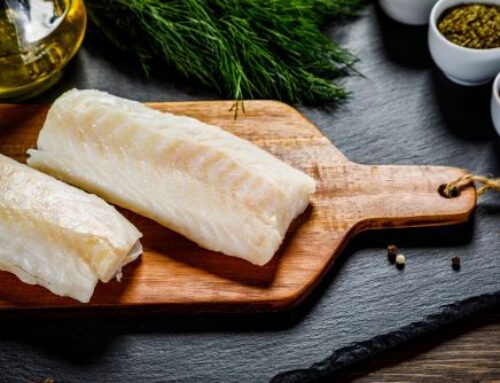1. Analgesic
Effect
Acts to relieve pain.
Essential Oils
Chamomile, clary sage, eucalyptus, geranium, ginger, juniper, lavender, sweet marjoram, peppermint, rosemary, sandalwood, thyme, tea tree, frankincense
2. Antibacterial
Effect
Agent used to disinfect surfaces and eliminate potentially harmful bacteria.
Essential Oils
Geranium, lavender, lemon, oregano, tea tree. Plus: bergamot, cassia, clove bud, marjoram, sweet, niaouli, palmarosa, patchouli, peppermint, pine, ravensara, sandalwood, thyme
3. Antidepressant
Effect
Used to prevent or alleviate depression.
Essential Oils
German and roman chamomile, clary sage, frankincense, geranium, jasmine absolute, lavender lemon, melissa, neroli, patchouli rose absolute, spruce, vetiver, ylang ylang
4. Anti-inflammatory
Effect
The property of a substance that reduces inflammation or swelling.
Essential Oils
Basil, beragmot, eucalyptus, clary sage, coriander, roman chamomile, cinnamon, clove, fennel, ginger, geranium, juniper, jasmine absolute, lavender, lemon, lemongrass, melissa, sweet orange, oregano, patchouli, peppermint, rose absolute, sandalwood, tea tree, thyme, wintergreen, ylang ylang
5. Antiviral
Effect
Medication that reduces the ability of virus to multiply and suppresses its ability to replicate.
Essential Oils
Bergamot, cinnamon, clary sage, clove, eucalyptus, geranium, juniper, lavender, lemongrass, melissa, neroli, rose, rosemary, tea tree, thyme
6. Aphrodisiac
Effect
A substance that increases libido, sexual response, and intimacy.
Essential Oils
Clary sage, neroli, patchouli, rosewood, sandalwood, ylang ylang
Absolute
Rose, jasmine
7. Astringent
Effect
A substance used that causes the contraction of skin cells and other body tissues.
Essential Oils
Cedarwood, clary sage, cypress, geranium, sandalwood, juniper, lemon, myrrh, patchouli, sandalwood
8. Digestive
Effect
Facilitation of the intestinal tract, reduction of gas.
Essential Oils
Anise, basil, fennel, ginger, grapefruit, juniper, lemon, lemongrass, mandarin, neroli, orange, roman chamomile, peppermint, rosemary, sweet marjoram, tangerine
9. Diuretic
Effect
Causing increased passing of urine.
Essential Oils
Cedarwood, caraway, cypress, eucalyptus, fennel, grapefruit, geranium, juniper, lavender, lemon, lemongrass, mandarin, patchouli, rosemary, pine
10. Expectorant
Effect
Promotes the secretion of sputum by the air passages, mostly used to treat coughs.
Essential Oils
Eucalyptus, cedarwood, ginger, lavender, peppermint, tea tree
11. Sedative
Effect
Promotes calm, or induces sleep
Essential Oils
Bergamot, clary sage, cedarwood, frankincense, helichrysum, lavender, neroli, patchouli, ylang ylang
12. Stimulant
Effect
Raises levels of physiological or nervous activity (in the body or any biological system.
Essential Oils
Basil, bergamot, cypress, eucalyptus, geranium, ginger, lemon, sweet orange, peppermint, rosemary
13. Vulnerary
Effect
A substance used to heal wounds and sores.
Essential Oils
Bergamot, chamomile, clove, frankincense, lemon, geranium, helichrysum, lavender, myrrh, peppermint, tea tree
It’s important to note that all essential oils should be diluted with a carrier oil prior to topical application. We are told lavender and tea tree can be used “neat,” meaning without a carrier oil.
Long-term use of using essential oils neat can cause dermatitis and/or sensitivity. Always be wise when using essential oils. It is highly advisable that all essential oils be used according to appropriate dilution guidelines.
General Dilution:
Safe dilution is 5% (5% essential oil in 95% carrier) that is about 30 drops of an essential oil in a 1 ounce bottle of carrier oil.
For full body massage:
15 drops of essential oil in 1 ounce of carrier oil.
For children or the elderly:
6-7 drops in 1 ounce of carrier oil.
For babies:
Drop that even more or avoid essential oils totally
Note:
Some essential oils, such as clove, cinnamon bark and lemongrass and other citrus oils are more likely to cause skin reactions than others (not everyone has a reaction). It is very important to follow instructions on the bottle, and is crucial to the safe practice of aromatherapy.
Safety
- Do not take any essential oils internally.
- Do not use essential oils undiluted on skin.
- Test diluted essential oils on skin area before general use.
- Use photosensitizing essential oils cautiously (i.e. lemon, lime, grapefruit).
- Consult with a health practitioner before use if pregnant, nursing or suffering from any
- medical condition, or taking medication.
- Keep essential oils out of reach of children.
- Do not use essential oils internally.
- Less is more – don’t overuse essential oils.
References (3)
– Aromatherapy Thymes Special Issue, Spring 2015
– Keville, K. Aromatherapy, A Complete Guide to the Healing Art,
The Crossing press, USA, (1995).
– Mojay G. Aromatherapy for Healing the Spirit, Henry Holt and Company Inc.,
England, (1996).
Aromatherapy Thymes magazine at barnesandnoble.com
http://instagram.com/aromatherapythymes





Leave A Comment